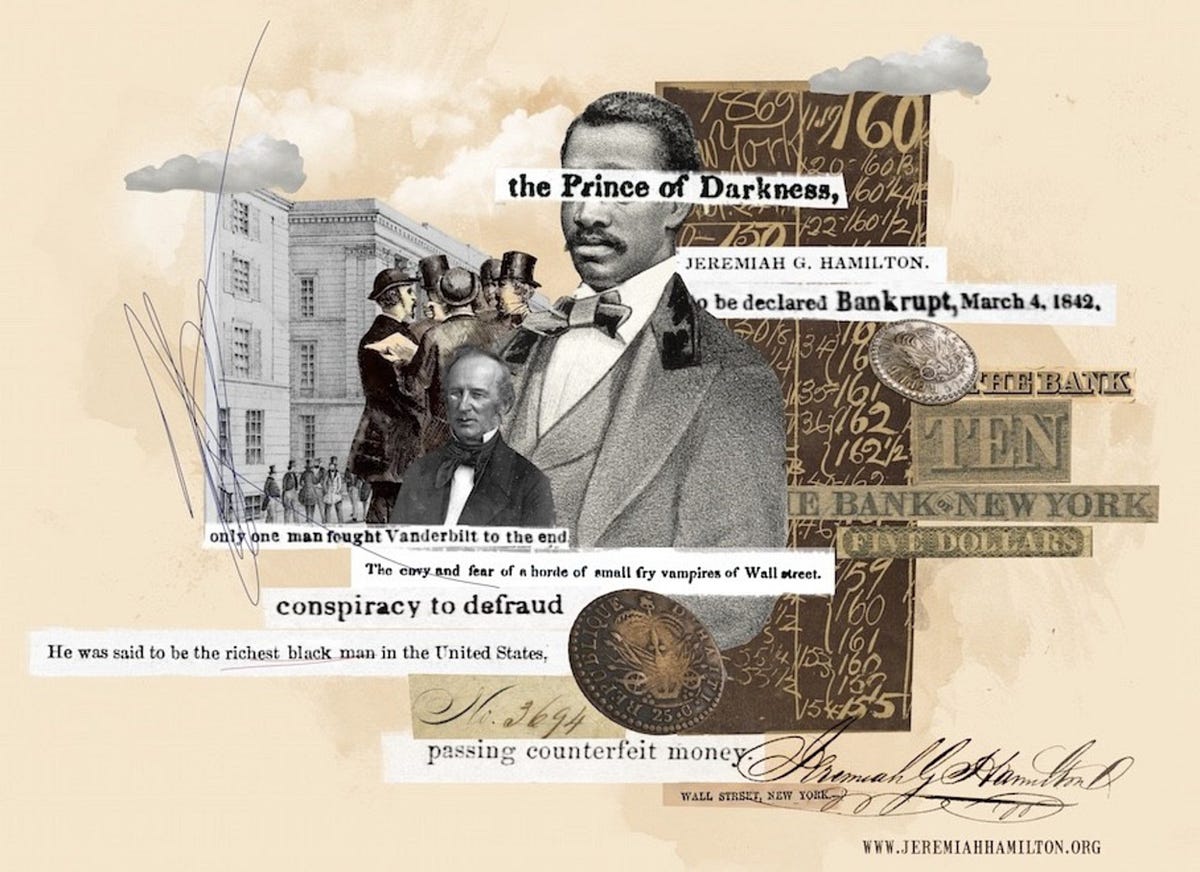Before I began my career on Wall Street, I lived in my hometown of Little Rock, Arkansas. I was one of the first African Americans to work in the financial services industry in the state, one of the few in the country at the time. After ten years in the business, I started my own company.
At the time, Little Rock was the political center of the universe because of the Clinton presidency. Business people, politicians, and dignitaries visited my home state en mass. I planned to seize upon the state’s notoriety by launching the first Black-owned investment company.
While this was an excellent strategy, there was one problem: I had no idea how to run a business. Because of my inexperience, I made many common entrepreneurial mistakes. Some were your garden-variety business errors, and others were due to my naïveté.
For one thing, I underestimated the difficulty of starting an African-American-owned investment firm in the South.
Growing up in Arkansas, I expected a certain degree of racism. For example, to lease the office space I wanted, I got a white friend in real estate to handle my negotiations instead of doing it in person. Still, there was more overt prejudice than I anticipated. When the building management realized they’d leased prime office space to a Black-owned business, they tried to wriggle out of my lease.

But I had other problems. I had no management training, not even a college degree. Unlike today, there were no startup incubators or accelerators to mentor me. Since I was one of the first Black folks in the country to attempt something like this, I didn’t have a blueprint to rely upon.
Since I’d been a reasonably successful bond salesman, I thought the jump to entrepreneurship would be easy. It never occurred to me that working somewhere for a long time is not the same as running a company.
Also, I didn’t have nearly as much startup money as I needed. I mistakenly thought some of Little Rock’s well-to-do African Americans would be interested in backing my startup idea, but I was wrong. When I realized no one would invest in my idea, I decided to go it alone.
I invested my life savings — about $60,000 — to get my startup off the ground. I got a loan from the Small Business Administration, heavy on equipment financing but light on working capital.
The SBA didn’t finance brokerage businesses, so to get their money, I pivoted my business model to money management to get around their rules. This was a huge mistake. I knew next to nothing about money management.
Like so many new entrepreneurs, I made tons of mistakes. I underestimated almost all my expenses. I compounded this problem by spending money on the wrong things.
When my business began to do well, weird stuff started happening. Someone from my building’s cleanup crew told me off-duty cops were entering my offices at night, doing who knows what. At one point, we had to sweep the office for bugs.
I should’ve rented cheap office space and grown from there. Instead, I leased half of the 35th floor in what is now known as the Simmons National Tower — the tallest building in the state.
Instead of staying lean until I generated revenue, I paid an interior designer friend to help decorate my office. I commissioned an artist in the family to create lots of original paintings. I bought items outright that I should’ve leased.
The mobile phone was still a novelty, so I had to drop thousands on a telephone system. I was unprepared for the astronomical costs that came with long-distance phone calls.
Ultimately, I had a kickass office space with a spectacular view. I also had a business that didn’t earn a dime for months. As if that wasn’t bad enough, another one of my mistakes almost killed my business.
Despite knowing I’d face some racism, I underestimated how bad it would be. At the time, other minority-owned startups like mine existed in states like New York and California. Because they did well, I assumed I would too.
As the first Black-owned financial services in the state’s history, I expected a warm reception from the business community, maybe even some media coverage celebrating my accomplishment.
I was very, very wrong. It didn’t occur to me that those other minority-owned firms had partnerships with big investment companies like Merrill Lynch, and I was a random Black guy in Arkansas with a bootstrapped business.
Also, I didn’t realize until it was too late that the state’s program for doing business with minority-owned companies had a couple of loopholes. The state’s goals for doing business with minorities were just that — goals. They weren’t rules or laws. No one got in trouble for failing to meet the state’s minority guidelines. Also, the state’s pension funds were exempt from the guidelines anyway.
So the pension funds I expected to do business with had no pressure to send a dime’s worth of business my way. And since I’d pivoted my business model to get my SBA loan, I’d unwittingly made it easy for them to say no to me.
As it turned out, no one rolled out the red carpet for my new company. Most of the people who made promises of future business disappeared once I opened my doors. I had dozens of meetings with people who assured me of business opportunities. None of them ever materialized.
In fact, almost nothing in my original business plan came to fruition. I had to face the reality that my business was, at best, a novelty. Little Rock’s investment community was fascinated by the idea of a minority-owned investment firm, but not enough to do any business with one.
But I was too stubborn to give up. Somehow, I made it through that first year, then the second, and a third, on nothing but hustle and grit.

The newspaper article changed everything.
One day, I read a story about a large bank in the Midwest that bought a smaller bank in Conway, a small town about 30 miles outside Little Rock. The article mentioned the bank in Conway had a brokerage subsidiary.
I knew the Midwestern bank already had a large brokerage operation. I wondered what they would do with the bank in Conway’s brokerage business. It took me several days, but I tracked down the bank officer mentioned in the article. To my surprise, he took my call.
After the initial pleasantries, I congratulated him on purchasing the bank. Then I asked if he’d be interested in selling the bank’s brokerage business. When he responded to my question by asking, “Is it worth anything?” I knew I was onto something.
Back then, it took a minimum of $25,000–$30,000 to acquire an active securities brokerage business. The gentleman from the Midwestern bank didn’t seem to know that. He also had no idea he was speaking with someone whose business was on the verge of failure.
After a few weeks of negotiation, my fledgling company acquired the Conway securities brokerage from the Mercantile Bank of St. Louis. Security Investments of Conway became Weems & Company, the first African-American-owned investment bank in the state’s history.
As far as I’m aware, I was the first African American in Arkansas history to make a finance-related acquisition.
For a while, things went well. I hired a former colleague to help me with bond trading. Then I branched out into stock trading. My wife came aboard as the company’s chief financial officer. Before long, we became the first minority firm to underwrite a municipal bond issue for the City of Little Rock.
I started winning a ton of bond business from the investment officer who ran the state of Arkansas’s portfolio. When my firm began bidding for the state’s bond trades, I discovered my competition was accustomed to charging the state high markups, so much so it was easy for me to win lots of business.
After years of being in business, Arkansas’s business media began to notice what I was doing. They started mentioning me in articles and inviting me to appear on local financial news programs. I even made one of those 40 under 40 lists. Things were finally looking up. And that’s when the trouble started.
When my business began to do well, weird stuff started happening. Someone from my building’s cleanup crew told me off-duty cops were entering my offices at night, doing who knows what. At one point, we had to sweep the office for bugs.
When the NASD (now known as FINRA), the group that governs all brokerages, came to do our annual audit, a state regulator showed up with them “to observe.” No state regulator had ever sat in on our previous regulatory audits.
When I caught the state’s “observer” copying our company’s trading records, I hired an attorney to find out what the hell was going on. That’s when the state securities regulators admitted they were investigating my business. But here’s the crazy part: they were never able to explain to my attorney why my business was under so much scrutiny. They couldn’t explain what I’d done wrong.
A few weeks later, the state regulators asked me to come in for “an interview.” This kind of interview is a regulatory equivalent of the “queen for a day” interviews prosecutors do right before they indict someone. Although regulators can’t send you to jail, they can fine you right out of business.
The two regulators in my interview explained their concerns. They produced my trading records, the ones their “observer” had copied. They said they couldn’t understand how a little investment company could out-compete Arkansas’s big investment firms for trading business. They wanted me to explain how I managed to do it.
I told them it wasn’t a mystery. I beat the big firms because they were charging the state too much for their trading business. Not only did the regulators say they didn’t believe me, they told me they had a problem with my company making so much money.
When I pointed out that all my company’s earnings were within the state’s guidelines, they said, “The spirit of the guidelines never intended for a firm like yours to make so much money.” Then the Arkansas regulators told me their theory for why Weems & Company was getting so much of the state’s bond business.
I had to be cheating.
One of them said, “Cheating is the only way a company like yours can win so much business.” Then regulators said they were pretty sure the state’s investment officer was in on my cheating scheme. Their theory was that he gave me the other bidders’ prices to help my company win. Of course, they didn’t have a shred of evidence to back up their theory.
“We barely know each other,” I said. “Why would he do something like that? Why would he risk his job to help me?” That’s when, as the saying goes, they said the quiet part out loud.
“Because you’re both Black,” one of the regulators answered.
For the record, the state’s investment officer, who was indeed Black, wasn’t helping me cheat to win bond business. But there was a good reason why I won so much of his business.
The investment officer was intelligent, but he didn’t have much experience. When he took over investments for the state, naturally, he dealt with the brokerages the state had given their business for decades.
Once I entered the picture, it took me about five minutes to figure out that my competition was taking advantage of his lack of experience. So I decided to undercut them all by charging a lot less. What I did is what Walmart does every day of the week. But I also upset the status quo.
As far as Arkansas regulators were concerned, the only way a small, Black-owned brokerage could beat out the big firms was by doing something illegal.
Now you might think someone accused of conspiring with a state employee to defraud the State of Arkansas would suffer enormous legal consequences. If they really thought I’d done what they accused me of, you’d think the regulators would’ve had me arrested.
That isn’t what happened.
At the end of the interview, Arkansas’s regulators gave me a choice. I could either pay back all the money my company earned from the state of Arkansas, which amounted to thousands and thousands of dollars, or the Arkansas Securities Department would close my investment business.
Even though I hadn’t broken a single rule, they threatened to shut me down.
The next day, the investment officer for the state called me. His boss had informed him that he could no longer do business with my company if he wanted to keep his job. After that telephone call, I never spoke to the investment officer again. And just like that, my best client was gone, compliments of the State of Arkansas.
For the next several months, the state’s regulators seized nearly all of my business’s revenue, which wasn’t much since my best client could no longer do bond trades with me.
Sometimes, the government picks which businesses win and which fail (see government bailouts). In my case, I never learned exactly why Arkansas’s regulators targeted my business.
Did my competition complain to the regulators about me getting so much business? Maybe. Did racism play a role? Definitely. I never got to the bottom of why they came after me. All I know is they squeezed little Weems & Company until it almost broke.
But believe it or not, I managed to stay in business. Eventually, I paid back every dime my company made from the State of Arkansas. The regulators were off my back, but my business was in shambles. I’m pretty sure that was the point.
Then things got worse. Out of nowhere, one of our trading clients threatened to sue the company. The truth is that it’s not unusual for clients to sue you in the finance business. Large investment firms can afford to pay a settlement to make the problem disappear.
But this lawsuit threat didn’t make sense. Weems & Company wasn’t a big firm with deep pockets. I’d just paid a ton of money back to the state, so my business was barely operational. What did these guys expect to gain from a lawsuit against my little company?
Since I had almost left nothing to lose, I ignored the lawsuit threat. I didn’t think they were serious about filing a lawsuit. Plus, they alleged that we persuaded them to purchase inappropriate securities, which was untrue. And we had the records to prove it. We just couldn’t afford a legal fight.
Then the client, a company called Merrydale Corporation, hired one of Arkansas’s top law firms. One day their attorney contacted me. He said they had a settlement offer in mind that they thought I’d find attractive. We met in the law firm’s conference room a few days later.
The owners of Merrydale Corporation, two guys from Arizona, and their attorney sat on one side of a long conference table, and I sat alone on the other. I was so broke from what happened with the Arkansas regulators I couldn’t afford to hire legal representation.
After hours of back and forth, the lawyer threw me a curveball. He said the guys from Arizona knew I couldn’t repay them. So instead of wasting money suing me, they wanted to invest in my company. They said they wanted to be my partners. I almost laughed in their faces.
But I listened while the lawyer explained their proposal. He said my problem was that even though I had a good business model, I didn’t have enough capital to succeed. After almost being put out of business by the state, I knew this to be true.
So instead of suing me and getting nothing, they wanted to invest in my business and make themselves whole from a share of the company’s profits. By day’s end, we’d hammered out a deal.
And just like that, the two guys from Arizona went from threatening to sue me into bankruptcy to becoming investors in my business. They agreed to invest $1 million, half the money in twenty-four hours and the rest a few weeks later.
I sold them a chunk of my company stock to make the deal work, but I kept a majority interest and, thus, control of my company. But there was a caveat: the guys from Arizona wanted someone working inside the business to protect their interests.
This kind of thing isn’t usual in business deals. Sometimes investors get seats on the board; other times, they get to place someone inside the company. The law firm recommended a guy I’d worked with previously. I’ll call him Jack.
When I told my wife what happened, she almost fainted.
The next day, $500,000 landed in Weems & Company’s bank account. And voila! I went from near-bankruptcy to CEO of an investment firm with several hundred thousand dollars in the bank.
Finally, I could pay myself and my wife a salary. As part of the deal, I got a company car, a brand-new Lincoln Navigator. A few days later, Jack came aboard as an officer of the company. Things were looking up again.
Almost immediately, I realized I’d made a bad deal.
The guys from Arizona made good on the first half of their million-dollar investment, but that was all. The deadline passed, and the rest of the promised investment never came.
But that didn’t stop them from acting like they owned my business. Both guys constantly tried to do things that broke securities rules, like having random people wire money into their investment accounts at Weems & Company.
Even though they were supposedly savvy investors, I spent lots of time explaining basic securities rules to them. Sometimes they’d become so angry with me that they’d call the lawyer who put our deal together, thinking he could make me do what they wanted.
There was also a lot of lying. One day, one of the guys from Arizona called to say they owned an entire bond issue they needed me to help them sell. As we spoke, they faxed me the bond issue’s particulars. The bond in question was over $300 million, so selling the entire bond issue meant hundreds of thousands in revenue.
But here’s the thing: there’s a financial information service called Bloomberg, named after Michael Bloomberg, the guy who used to be mayor of New York. Inventing the Bloomberg service is what made him a billionaire.
One great thing about the Bloomberg service is that you can identify the owners of almost any security. The two guys from Arizona didn’t know it, but I had a Bloomberg terminal on my desk.
As I suspected, Merrydale Corporation did not own the entire bond issue. The company didn’t even own any of the bonds. I remember wondering why they lied about something so easy to disprove. From that moment on, I saved every document I received from the two guys from Arizona.
After a few months, it was pretty clear things with my new partners weren’t working out. The guys from Arizona ran out of excuses for not having sent the remaining $500,000 they agreed to invest, plus I shot down every one of their sketchy investment schemes.
Late one afternoon, I got a call from my company’s accountant. He’d noticed something odd in our bank records. The company had two bank accounts, a working capital account, which paid salaries, bills, and incidentals, and a capital account that held most of the $500,000 Merrydale investment. To move money from either bank account required Jack’s signature, plus mine or my wife’s.
Our accountant had discovered a third company bank account, one neither my wife nor I knew about. Oddly, the only signature required on this account was Jack’s.
For business accounts, banks require a document called a corporate resolution. This helps them know everyone who is authorized to write checks on the company’s behalf. Our resolution required the signature of two company officers to open bank accounts and on every check.
Since we only had three officers, and neither my wife nor I signed off on a new bank account, we wondered, who at the bank approved opening this third bank account?
Then things got even crazier.
When I called the bank and told them I wanted to add a signatory to the mystery bank account, I also asked how the bank opened an account for my company without the required documentation in the first place. The bank officer had no explanation.
The next thing I knew, the bank’s president was on the phone. I wondered why the bank president was getting involved with a signature change on a checking account. I got my answer soon enough.
The president told me the bank would not add another signatory to that company account. Suddenly, the bank “had questions” about who owned my business. Even though he didn’t own one share of Weems & Company stock, the bank president seemed to think Jack owned my company.
I reminded the bank’s president of the mountain of documents I provided to open my company’s accounts — the corporate resolution, the articles of incorporation, and the company’s certification as a minority-owned business, all of which left no doubt about the company’s ownership. I know it’s hard to believe, but the bank acted as though none of this mattered.
As I listened to this nonsense, I remembered something. When I agreed to my deal with the guys from Arizona, their lawyer insisted that I change banks. He said Jack had “a relationship” with the bank they wanted us to use, which would be helpful if we ever needed to borrow money. At the time, it didn’t seem like a big deal.
What I found out later was that Jack was a recent tech millionaire. He’d invested in companies like Red Hat and Google right before the start of the tech boom. Also, he was one of the largest depositors in the bank that held Weems & Company’s money.
I think that’s why the bank opened a bank account for Jack without documentation. I believe the bank president was scared Jack would pull all of his money out of their bank.
My wife and I came to work early the next day, ready to confront Jack, but he never showed up. We spent the day trying to figure out our next move. Then the phone rang.
It was the bank president. He said he called to tell me that, a few minutes earlier, Jack had attempted to withdraw hundreds of thousands from my company’s bank account. But instead of reporting Jack’s embezzlement attempt to the authorities, the bank president froze all my company’s funds with the bank.
He said he wanted to “let the courts figure it out.” Since securities brokerages are regulated businesses, this blew up the company’s finances. Weems & Company was instantly insolvent, all because of a bank president who acted like he wasn’t sure I really owned my business.
Within days, it was raining lawsuits. My wife and I sued Merryvale Corporation, the two guys from Arizona, and Jack. At the same time, they sued the two of us back. At one point, we had five different lawsuits going on simultaneously. In the meantime, the money I had left was running out.
Then, as if things weren’t already crazy, something even more unbelievable happened. Our lawyer called me and said, “I just finished a conference call with the judge and the Merryvale lawyers. I’m going to need you to sit down for this.”
All the lawyers representing the two guys from Arizona wanted to resign. Earlier that day, the Justice Department indicted them in a $23 million money-laundering scheme. According to the indictment, my partners from Arizona were international con artists.
According to the Justice Department, they’d scammed dozens of people. As I read the indictment, I wondered if this was how they had the money to invest in my business.
Later that day, the judge let all their lawyers resign. All the lawsuits against me, my wife, and my company disappeared. That was great, except my business was in shambles, and my wife and I were flat broke. For the first time in years, I was job hunting. I sent my resume to every investment firm I could think of.
We were on the verge of losing everything we owned when I got a phone call from the president of a Black-owned investment firm on Wall Street.
They wanted to hire me.
A few months later, my wife and I were living in a Manhattan apartment with a doorman, walking distance from that diner on Seinfeld. I had a trading job with a six-figure salary and perks you wouldn’t believe. Even my health insurance was free. We couldn’t believe our luck.
We put the whole mess with Arkansas’s regulators, Merrydale Corporation, and the two guys from Arizona behind us.
Fast forward six months.
One day, I was sitting at the trading desk of my new Wall Street employer when my direct line rang. I answered, expecting to hear my wife’s voice. Instead, it was a phone call that went something like this:
Me: Trading.
Voice: Is this Marlon Steven Weems? (When they said my middle name, I knew this was bad news)
Me: Yes, how can I help you?
Voice: This is Special Agent ______ from the Federal Bureau of Investigation. I’m contacting you regarding your involvement with (names of the two guys from Arizona), and Merrydale Corporation, B.V. The Department of Justice wants to determine your possible involvement with the activities for which the parties mentioned earlier are under indictment. We need to decide whether or not you should be considered a target of our investigation. To determine this, you must come to Phoenix, Arizona, to sit for a deposition.
Me: !!!
I tried my best to avoid it, but unlike Washington politicians, when regular people get federal subpoenas, the government expects us to show up. About a week later, I landed in Phoenix, Arizona. My flight, my room in a cheap hotel — even my food — were all paid for, compliments of the U.S. government.
The following morning, I showed up an hour early for my nine o’clock deposition. I sat in the lobby of a federal office building, totally alone.
I was still recovering financially, so I couldn’t afford a lawyer to accompany me to the interview. Instead, I called an attorney friend who worked for a big New York law firm. He gave me tips on not to talk myself into an indictment.
In essence, he said to tell the truth.
My meeting was with two federal agents. One represented the FBI, and the other was from the Treasury Department. They reiterated what the FBI agent said to me over the phone.
They wanted to decide whether I should be a target of their money laundering investigation. They told me they’d haul me before a grand jury impaneled down the hall if I didn’t cooperate.
Eight hours later, I left the DOJ meeting, a free man.
I escaped indictment, not because the two government agents took pity on me, but because I showed up for the deposition with a secret weapon.
After my former partners’ indictment, my deal with the two guys from Arizona began to make sense. I realized their threat to sue my company, the unexpected investment, and putting Jack inside my business — all of it — was a plan to make my company part of their criminal enterprise.
Owning an investment firm makes almost anyone look legit — and it’s the perfect business for international money launderers. The guys from Arizona figured the money, the Lincoln Navigator, and the other perks would make me look the other way while they turned Weems & Company into their financial laundromat.
They were wrong.
Their biggest miscalculation was that they never expected my wife and me to be honest people. But there was something else my indicted ex-partners didn’t anticipate. They never expected us to have copies of everything — minutes of every meeting, all their fraudulent communications, each sketchy memo. I even had their fax to Jack telling him to pull all the money from the Weems & Company bank accounts.
So, when I flew to Phoenix for my meeting with the DOJ, I put all those files in a banker’s box and took them with me. Even though I didn’t have a lawyer, I had the next best thing.
I had receipts.
For about eight hours that day, I answered every one of the two federal agent’s questions. I told them things they didn’t know. I helped them understand what the guys from Arizona were attempting to do. I told them how those two crooks destroyed my business.
By the end of the interview, I was in the clear. The DOJ decided I was a victim, not a target. Not only did I remove myself from suspicion, I helped the government send the two guys from Arizona to federal prison for a very long time.
It took a while, but my wife and I finally put the whole episode behind us. Then, as luck would have it, I got another chance to start an investment firm a few years later, this time on Wall Street.
But that’s a story for another day.
This post originally appeared on Medium and is edited and republished with author's permission. Read more of Marlon Weems' work on Medium.


